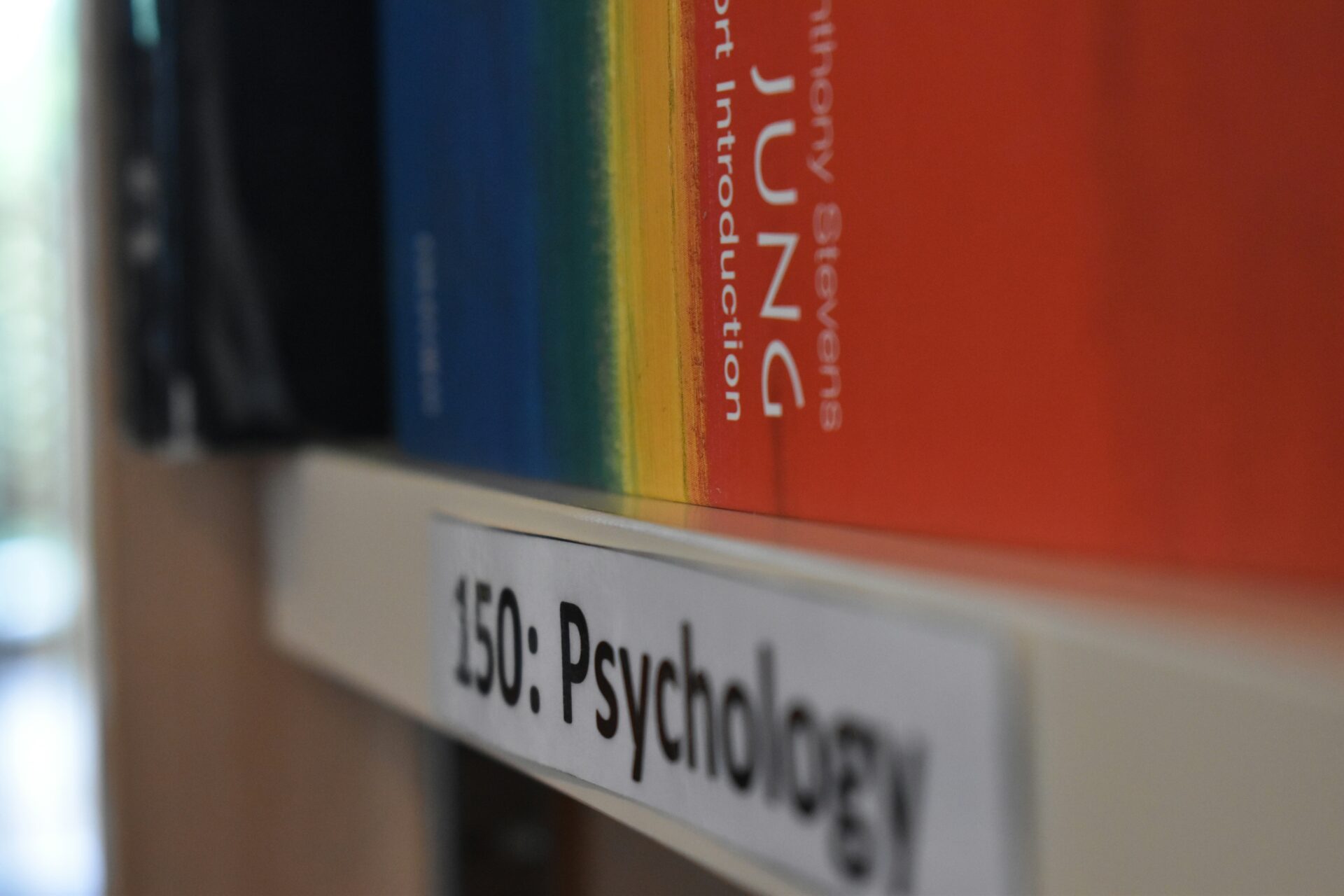The International Baccalaureate (IB) Psychology exam is a rigorous assessment designed to evaluate students’ grasp of psychological concepts, research methods, and critical thinking skills. It is a core component of the IB Diploma Programme and is offered at both Standard Level (SL) and Higher Level (HL). The exam not only tests students’ knowledge but also their ability to apply, analyse, and evaluate psychological theories and studies, making it a vital part of a well-rounded IB education.
The exam consists of several key components:
- Paper 1: Both SL and HL students take this paper, which assesses knowledge of the biological, cognitive, and sociocultural approaches to psychology. It includes three Short-Answer Questions (SAQs)-one from each approach- and an Extended-Response Question (ERQ), where students choose one of three prompts to answer in depth. For HL, at least one ERQ prompt will be based on HL extension topics (such as animal research, cognition and the digital world, and globalisation).
- Paper 2: This paper focuses on the application of psychological approaches to specific areas, such as abnormal psychology or human relationships. SL students answer questions on one option, while HL students tackle two.
- Paper 3: Exclusive to HL students, this paper assesses understanding of research methods in psychology, often through analysis of unseen stimuli.
- Internal Assessment (IA): Both SL and HL students must complete an IA, which involves designing, conducting, and reporting on a simple psychological experiment. This component is crucial for demonstrating practical research skills and contributes significantly to the final grade.
The IB Psychology exam’s importance lies in its ability to foster critical thinking, research literacy, and a deep understanding of human behaviour, skills that are invaluable for further study and a wide range of careers.
Before diving in, Going for a summer school in prestigious locations such as an Oxford summer school or a Cambridge summer school is a great step forward. Both cities have long been global centres of academic excellence, filled with centuries of groundbreaking research, world-renowned libraries, and vibrant student communities.
We’ve prepared this IB Psychology guide as a way to help you prepare for your exam.
Tips for Effective Preparation
Success in IB Psychology requires more than rote memorisation. Here are seven essential tips to help you prepare thoroughly and avoid common pitfalls:
1. Understand, Don’t Just Memorise
Many students fall into the trap of memorising studies and model answers. However, true success comes from understanding the methodology, results, and implications of each study. This allows you to analyse and critique studies effectively, which is a key skill assessed in the exam.
2. Focus Your Study
For Paper 1, it’s strategic to focus deeply on one of the three main approaches (biological, cognitive, or sociocultural) for the extended essay question. Mastering one approach thoroughly is more effective than spreading yourself thin across all three.
3. Practice Writing Plans, Not Essays
Rather than memorising entire essays, practice writing concise plans for each topic. This helps you organise your thoughts quickly under exam conditions and adapt to unexpected questions.
4. Use Reliable Online Resources
Supplement your learning with reputable online resources. Websites like Themantic Education offer clear explanations, sample essays, and quizzes that can clarify difficult concepts and help you practice exam-style questions.
5. Prioritise Your Internal Assessment
The IA is a significant portion of your final grade and is often underestimated. Start early, seek feedback from teachers, and ensure you understand the latest requirements, such as using a model or theory (not just an effect or bias) as your study’s foundation. Pay close attention to the structure and clarity of your report. We’ve included more IA tips in the next section!
6. Avoid Common Mistakes in SAQs
Frequent errors include answering the wrong topic, using an incorrect supporting study, providing vague definitions, including irrelevant information, and failing to explain studies properly. To avoid these, create a “cheat sheet” linking each topic to its relevant studies and definitions, and practice concise, focused responses.
7. Practice Past Papers and Seek Feedback
Regularly attempt past exam questions and review mark schemes to understand what examiners expect. Ask for feedback from teachers or experienced peers, but avoid seeking too many opinions to prevent confusion.
Mastering the Internal Assessment (IA)
The IA is worth 20% of your final grade and is often students’ first major exposure to academic research. To excel:
Structure Breakdown
- Introduction (500-600 words*): Clearly state your aim, hypothesis, and operationalised variables. Avoid vague statements like “I think caffeine affects memory.” Instead: “This experiment investigates whether consuming 200mg of caffeine (IV) reduces short-term recall of 15 unrelated words (DV) in 16–17-year-olds.”
- Exploration (300-400 words): Summarise two foundational studies that informed your hypothesis. For example, if testing caffeine’s impact, cite a neurobiological study on adenosine receptors and a cognitive experiment on stimulants and memory.
- Analysis (400-500 words): Present raw data in tables/graphs, then apply descriptive statistics (mean, standard deviation). Use inferential stats like the Mann-Whitney U test for small samples. Avoid simply stating “results were significant”-explain what the numbers mean for your hypothesis.
- Evaluation (500-600 words): Discuss 3–4 limitations (e.g., sample bias, confounding variables) and link them to improvements. Example: “Using only IB students as participants limits generalizability; future studies should include diverse age groups.”
*These word counts are guidelines, not strict rules. The key is to be clear, concise, and thorough. The total word count must stay within 1,800–2,200 words. Exceeding this can lead to penalties.
Common IA Pitfalls
- Unclear Variables: “Stress” is too vague-specify “heart rate measured via Fitbit during timed exams.”
- Overcomplicated Designs: Avoid multi-variable experiments. Focus on one IV and DV.
- Ignoring Ethics: Failing to mention informed consent, anonymity, or debriefing can cost marks.
Where Mistakes Are Most Often Made-and How to Avoid Them
- Wrong Topic or Study: Double-check that your chosen study matches the question’s requirements. Use a personalised review sheet and get it checked by your teacher.
- Poor Definitions: Define key psychological terms clearly and precisely. If a term might be unfamiliar to someone new to psychology, define it.
- Irrelevant Content: Stay focused on the question. Avoid lengthy introductions or unnecessary details, especially in SAQs.
- Weak Critical Analysis: Go beyond describing studies-evaluate their strengths, limitations, and relevance to the question.
- Neglecting the IA: Don’t treat the IA as an afterthought. It can make the difference between a 6 and a 7.
Join the Immerse Education 2025 Essay Competition
Follow the instructions to write and submit your best essay for a chance to be awarded a 100% scholarship.

Additional Tips for Writing the Exam Well
Excelling in the IB Psychology exam isn’t just about preparation – it’s also about execution. Here are some advanced strategies for writing high-scoring answers:
Use the Question’s Language
Echo the wording of the question in your answer to demonstrate focus. For example, if asked about “genes and behaviour,” use these terms throughout your response.
Integrate Research Effectively
Include at least two relevant studies for each major point, balancing classic and modern research. Choose studies that offer different perspectives or findings to show breadth and depth.
Develop a Clear Argument
Every ERQ should present a clear thesis or argument. State your position early and use evidence from research to support it. Critically evaluate the studies, acknowledging both their strengths and limitations, and explain how these affect your overall argument.
Structure Your Answers
Organise your essays with a clear introduction, body paragraphs, and conclusion. Each paragraph should have a main idea, evidence, and analysis. Use linking phrases to ensure logical flow.
Master Time Management
Practice writing under timed conditions to ensure you can complete all required questions. Allocate time based on the marks available and the complexity of each question.
Conclude Effectively
Your conclusion should briefly recap your main argument and reinforce how the evidence supports your thesis. Avoid introducing new information at this stage.
Be Critical, Not Just Descriptive
Demonstrate higher-order thinking by evaluating the methodology, sample, and implications of studies. Suggest improvements or alternative interpretations where appropriate.
Highlight Key Terms
Use bold or underlined text (where allowed) to emphasise key concepts, variables, or hypotheses, especially in your IA.
Use Appendices Wisely in the IA
Attach informed consent forms, raw data, and other relevant materials in the appendices to support your IA’s transparency and thoroughness.
Decoding Command Terms
IB questions use specific verbs that dictate response structures. Misinterpreting these is a top reason for lost marks:
- “Evaluate” (ERQs): Requires weighing strengths and limitations. Use phrases like “However, this study’s sample of 12 university students limits ecological validity…”
- “Contrast” (SAQs): Don’t just describe two theories- highlight differences. Example: “While the biological approach emphasises serotonin imbalances in depression, the cognitive approach focuses on irrational thought patterns.”
- “Discuss” (ERQs): Present multiple perspectives. For a question on conformity, analyse both social identity theory and normative influence.
Pro Tip: Create a “command term glossary” with these terms and practice rewriting thesis statements to match. Example:
- Original: “This essay is about social cognitive theory.”
- Revised for “Evaluate”: “This essay argues that social cognitive theory overemphasises observational learning, as evidenced by…”
Mental Strategies for Exam Day
1. The 5-Minute Brain Dump
Use scrap paper to jot down key terms, studies, or formulas immediately upon starting. This reduces anxiety and provides a quick reference.
2. Employ Time Allocation Formula
For example, in Paper 1:
- SAQs: Allocate approximately 20 minutes per SAQ, totalling 60 minutes for all three. This includes time for planning, writing, and reviewing each answer.
- ERQ: Allocate about 55 minutes for the ERQ-50 minutes for writing and 5 minutes for proofreading
3. Stress Management
- If stuck on a question, employ the “5-4-3-2-1” grounding technique: Identify 5 things you see, 4 you can touch, 3 you hear, 2 you smell, 1 you taste.
- Practice “box breathing” (4-second inhale, 4-second hold, 4-second exhale) during study sessions to train calmness.
4. Post-Exam Review Ritual
After mocks, categorise mistakes:
- Knowledge Gaps: Missed a key study? Add it to flashcards.
- Time Issues: Exceeded 10 minutes on an SAQ? Practice timed drills.
- Misread Questions: Highlight command terms in past papers for a week.
Conclusion
The IB Psychology exam is a demanding yet rewarding assessment that challenges students to think critically, apply research methods, and articulate complex ideas clearly. By focusing your study, practising effective writing strategies, and avoiding common pitfalls, you can maximise your chances of achieving a top score. Remember, success in IB Psychology is not just about memorising content – it’s about demonstrating understanding, analysis, and the ability to communicate your ideas with clarity and precision.
Start early, seek feedback, and approach each component-especially the IA-with diligence and care. With the right strategies and a commitment to continuous improvement, earning a 7 in IB Psychology is an achievable goal.
To be better prepared, besides reading this IB Psychology guide, we suggest checking our our Psychology Summer School or the Online Courses on offer. But if you want more of a hands-on approach, you can explore the Psychology Online Research Programme made for students looking to start a career in this area.
If you prefer to learn from home, an online summer school can be just as valuable. It offers complete flexibility, allowing IB students to balance revision, extracurriculars, and rest while still accessing expert tutors from top universities.
Good luck!






















